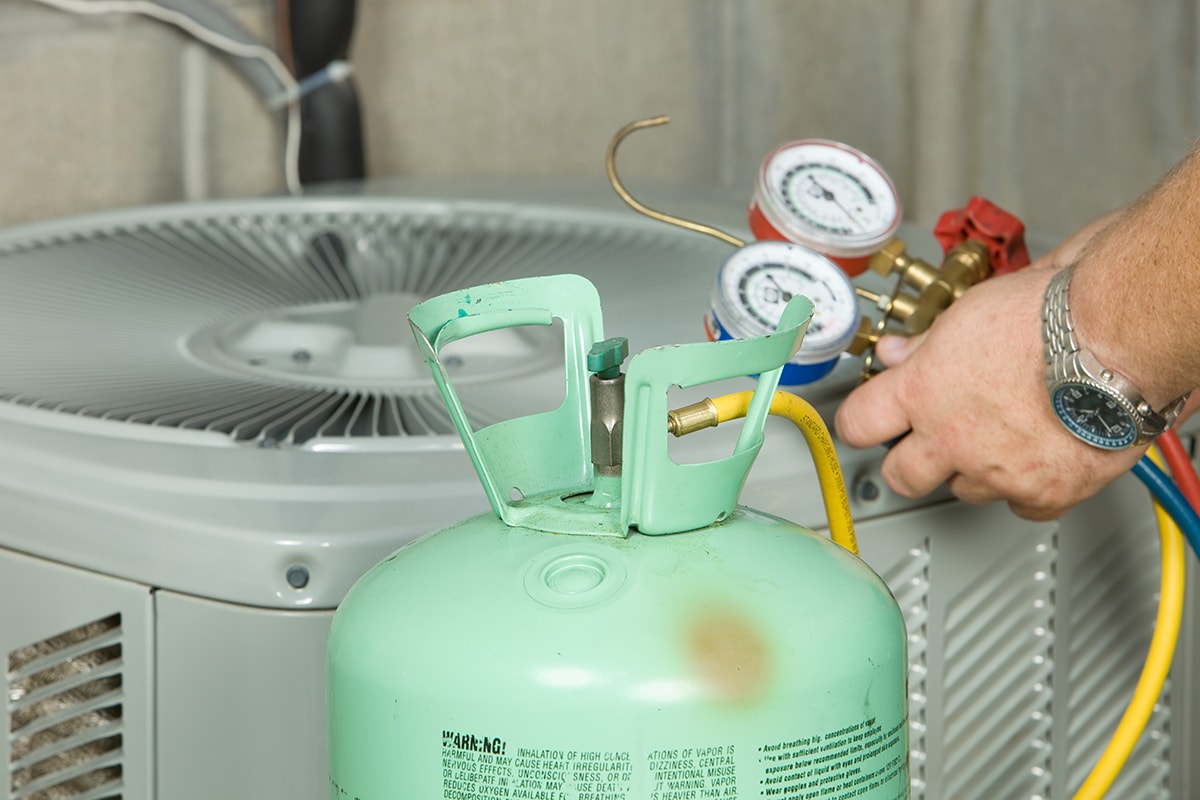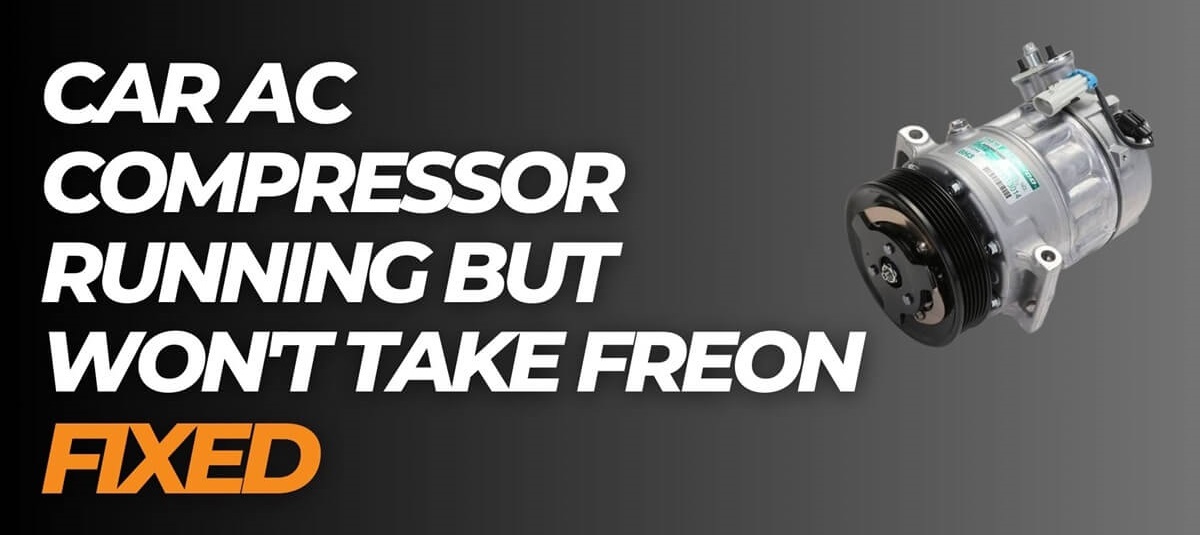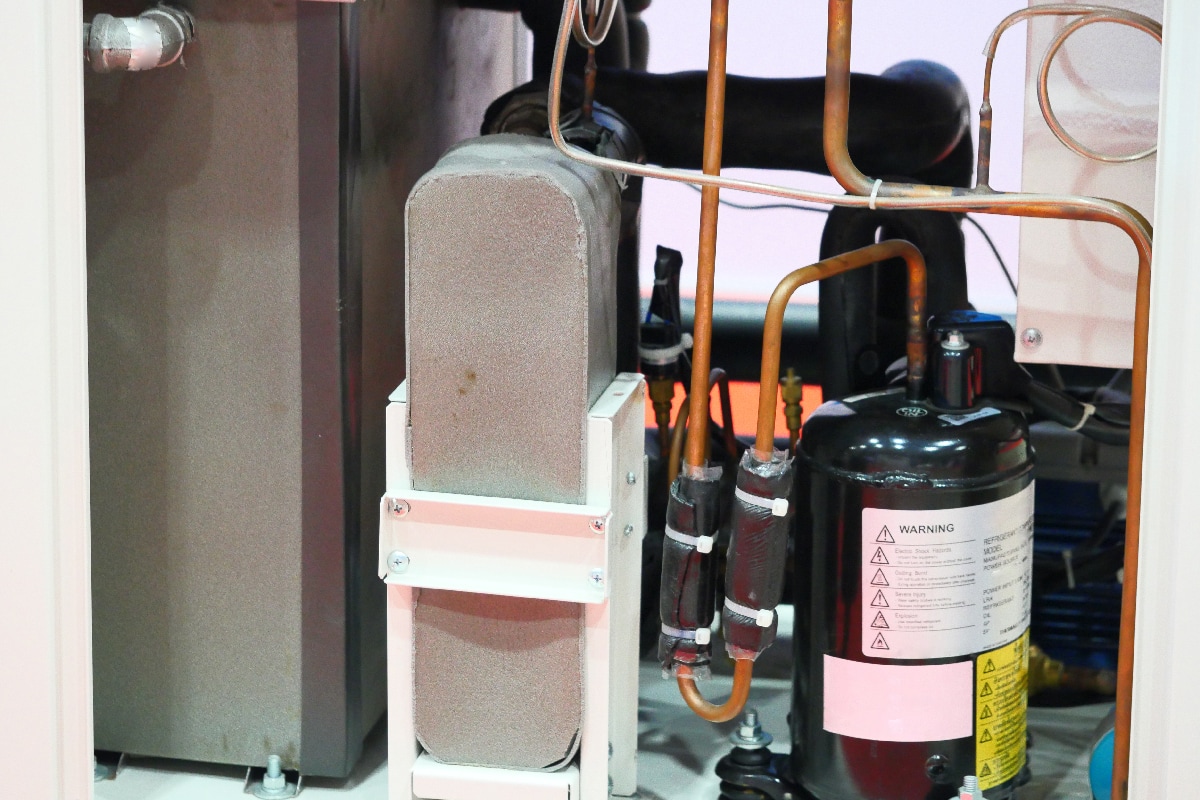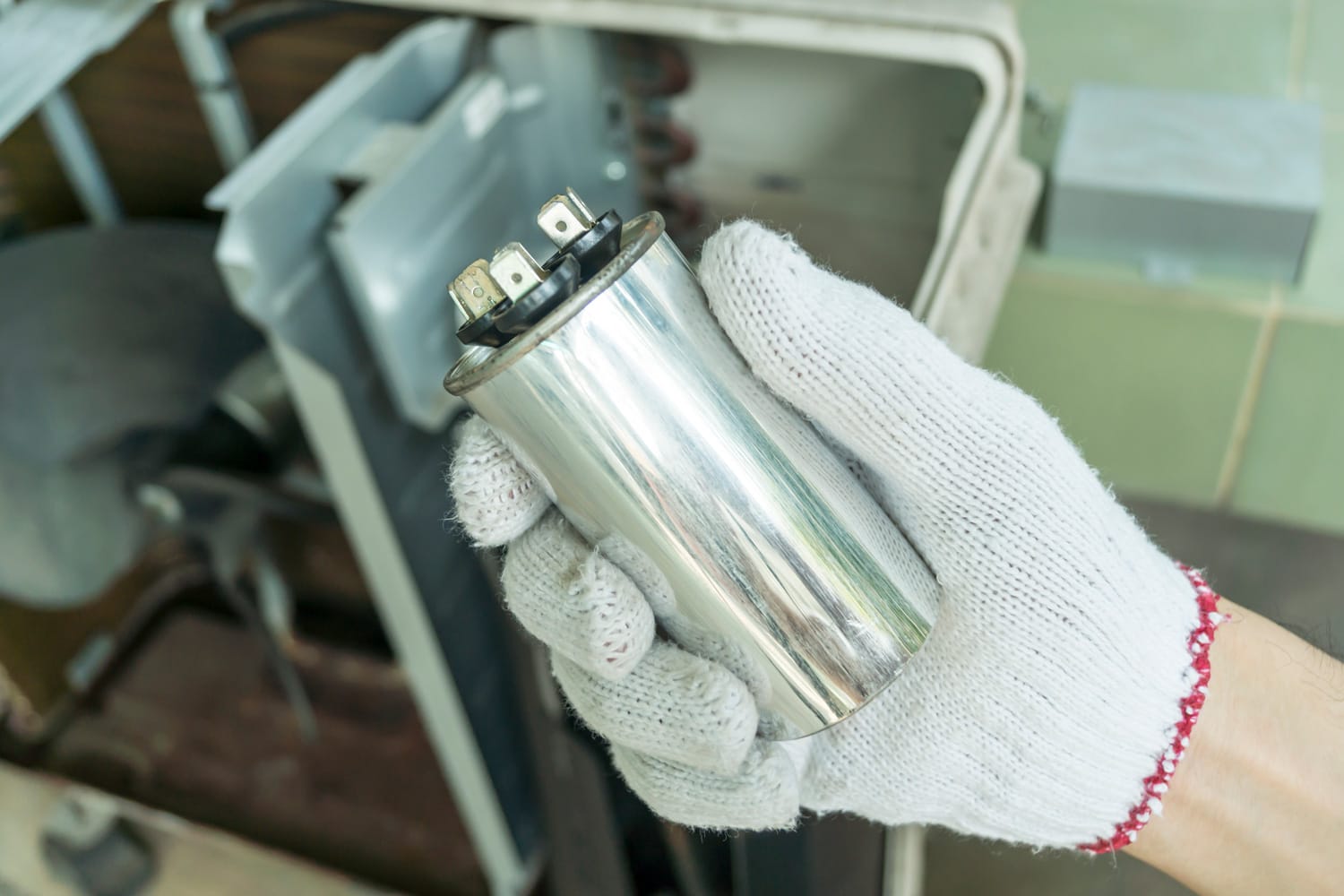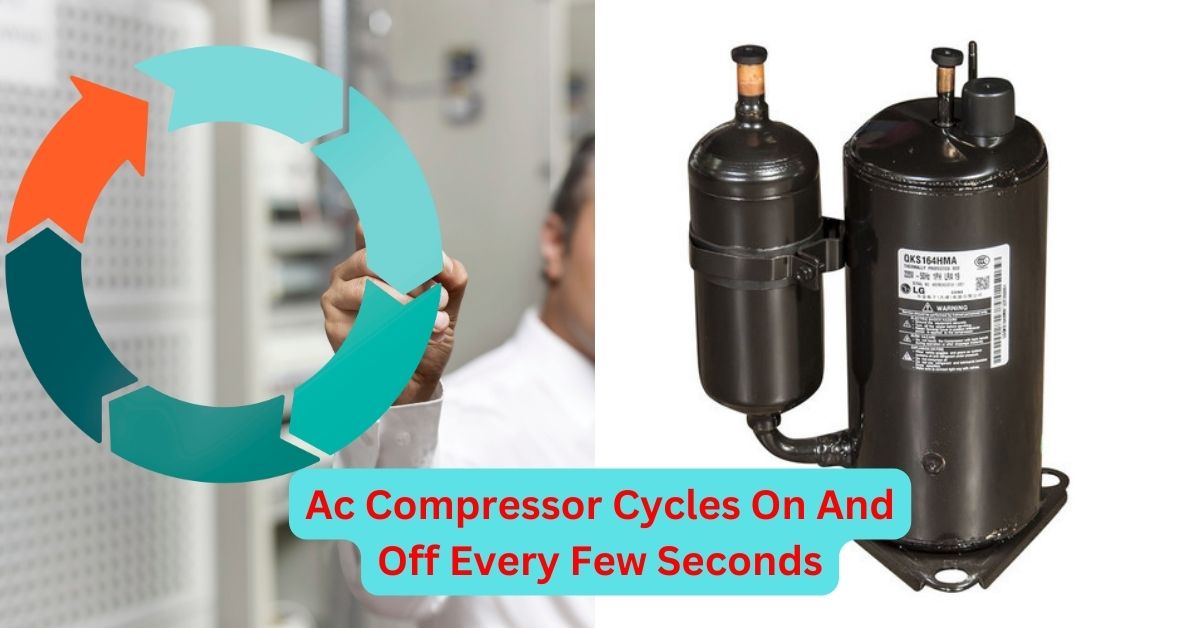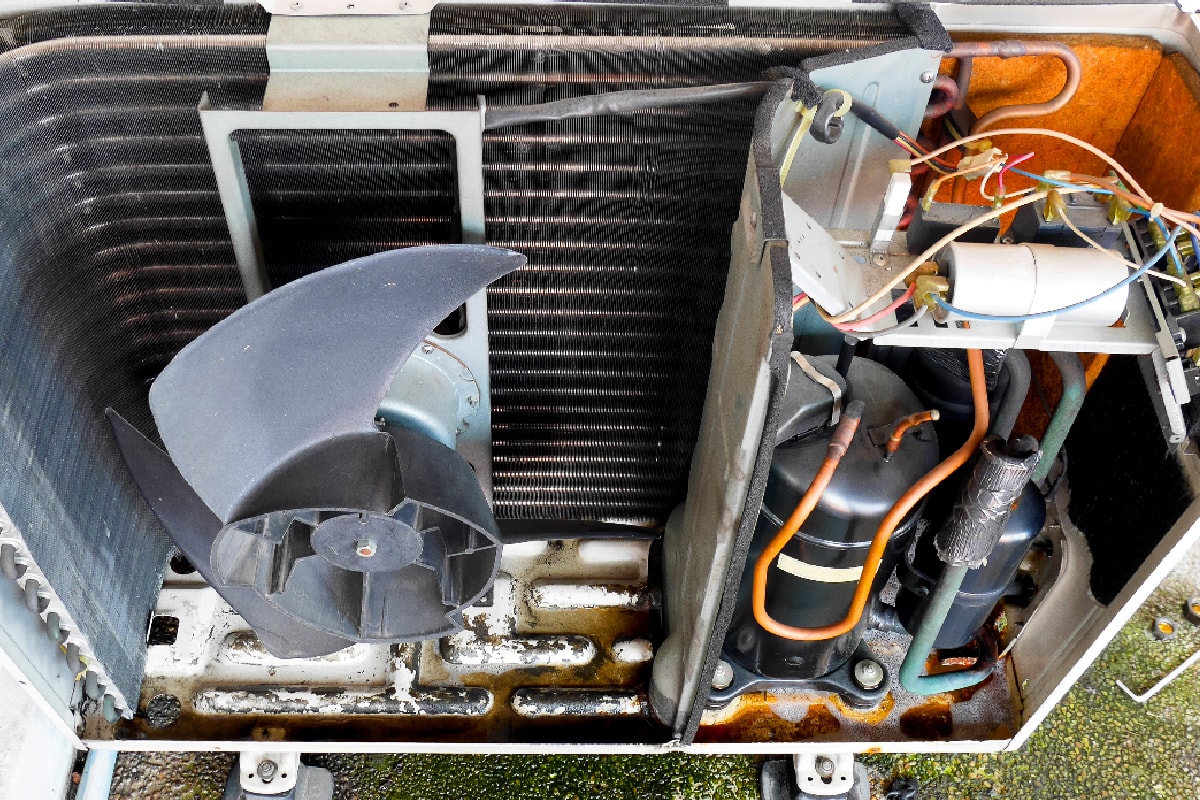Will Ac Compressor Turn On Without Freon
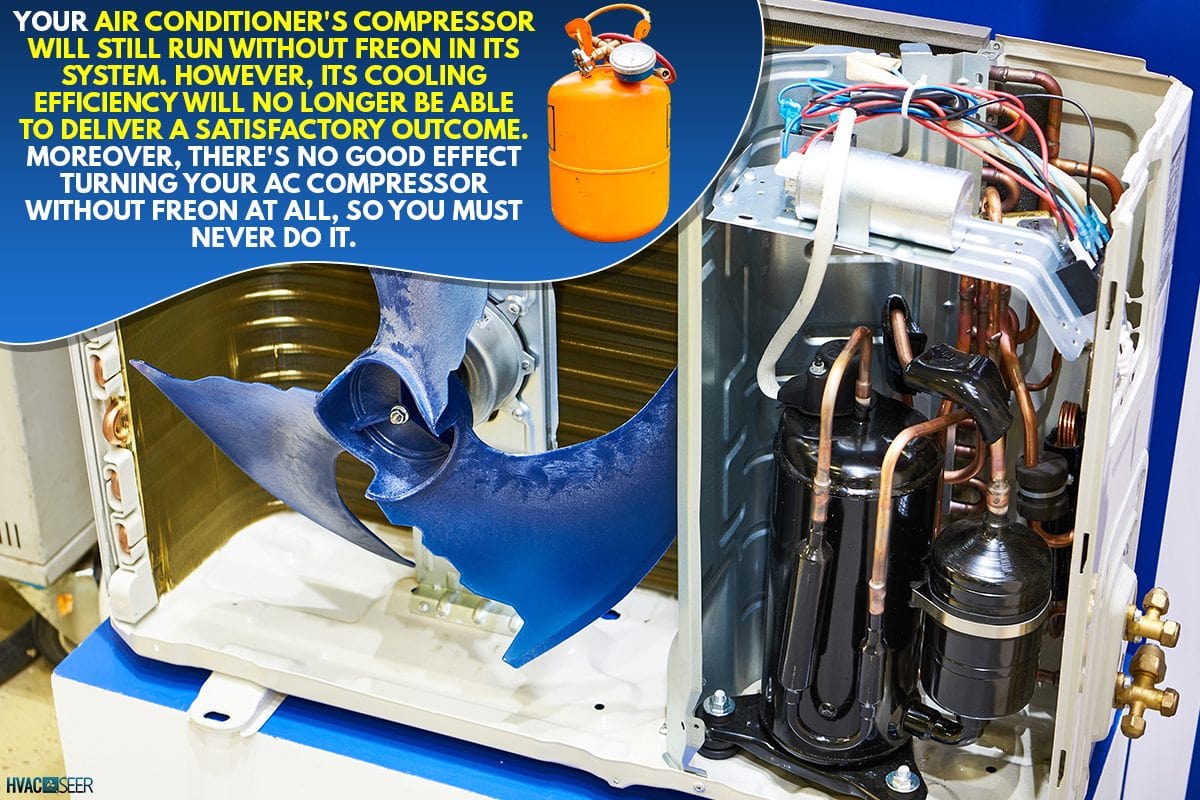
Is your AC acting up? One common concern is the refrigerant level. Let's tackle some frequently asked questions about whether your AC compressor can run without Freon, and what to do if it can't.
Frequently Asked Questions: AC Compressor and Freon
Question 1: Will My AC Compressor Turn On If There's No Freon (Refrigerant)?
The short answer is generally, no, your AC compressor should not turn on if there is little or no Freon (refrigerant) in the system. Modern AC systems are designed with a low-pressure switch. This switch is a safety mechanism. It monitors the refrigerant pressure. If the pressure drops below a certain threshold, the switch prevents the compressor from engaging. This is to protect the compressor from serious damage.
Here's why it's important:
- Lubrication: Refrigerant carries oil that lubricates the compressor. Without enough refrigerant, the compressor will run dry, causing friction and potentially catastrophic failure.
- Overheating: Refrigerant helps to cool the compressor motor. Running the compressor without refrigerant can lead to overheating and burnout.
- Damage Prevention: The low-pressure switch is designed to prevent these issues, saving you from costly repairs or a complete compressor replacement.
While the low-pressure switch is designed to prevent operation, a faulty switch could allow the compressor to attempt to run even without sufficient refrigerant. However, this is a dangerous situation that needs immediate attention.
Question 2: What Happens If the AC Compressor Runs Without Freon?
If your AC compressor manages to run without adequate refrigerant, the consequences can be severe and expensive. Here's a breakdown of what might happen:
- Compressor Damage: This is the most likely and most costly outcome. Without refrigerant to carry lubricant, the internal components of the compressor will experience excessive friction. This can lead to scoring, seizing, and ultimately, compressor failure. Replacing a compressor is a major repair.
- Motor Burnout: The compressor motor relies on the refrigerant to help dissipate heat. Without it, the motor can overheat and burn out, requiring replacement.
- Increased Energy Consumption: Even if the compressor doesn't immediately fail, running it with insufficient refrigerant can make it work harder and less efficiently, leading to higher energy bills.
- System Contamination: A failing compressor can release metal shavings and debris into the refrigerant lines, contaminating the entire system and requiring a thorough flushing and cleaning.
In short, running a compressor without refrigerant is a recipe for disaster. Addressing refrigerant leaks promptly is crucial to protect your AC system.
Question 3: How Do I Know If My AC Is Low on Freon (Refrigerant)?
Several signs can indicate that your AC system is low on refrigerant. Here are some common indicators:
- Warm Air: This is often the most obvious sign. If your AC is blowing warm air instead of cool air, it could indicate a refrigerant leak.
- Ice on the Evaporator Coil: While it might seem counterintuitive, low refrigerant can cause the evaporator coil (usually located inside the indoor unit) to ice up. This happens because the low pressure and temperature cause moisture to freeze on the coil.
- Hissing or Bubbling Sounds: You might hear a hissing or bubbling sound coming from the refrigerant lines or the AC unit. This could indicate a refrigerant leak.
- Longer Cooling Cycles: If your AC is running for longer periods than usual to cool your home, it could be struggling due to low refrigerant.
- Higher Energy Bills: A decrease in efficiency caused by low refrigerant can lead to increased energy consumption and higher monthly bills.
- Visible Leaks: Look for signs of oil leaks around the AC unit, especially at the joints and connections. Refrigerant often carries oil, so leaks can be a telltale sign.
If you notice any of these signs, it's essential to call a qualified HVAC technician to inspect your system and determine the cause of the problem.
Question 4: What Should I Do If I Suspect My AC Is Low on Freon (Refrigerant)?
If you suspect your AC system is low on refrigerant, taking immediate action is important to prevent further damage. Here's what you should do:
- Turn Off the AC: This will help prevent further damage to the compressor and other components.
- Contact a Qualified HVAC Technician: Do not attempt to add refrigerant yourself. Refrigerant handling requires specialized equipment and knowledge. Improper handling can be dangerous and harmful to the environment.
- Explain the Symptoms: When you call the technician, describe the symptoms you've noticed, such as warm air, icing, or unusual noises. This will help the technician diagnose the problem more quickly.
- Allow the Technician to Inspect the System: The technician will inspect the system for leaks, check the refrigerant levels, and determine the cause of the problem.
- Follow the Technician's Recommendations: The technician will recommend the appropriate repairs, such as leak detection and repair, refrigerant recharge, or component replacement.
Remember, refrigerant leaks are often a symptom of a larger problem. Simply adding refrigerant without addressing the underlying leak will only provide a temporary fix. A qualified technician can identify and repair the leak, ensuring that your AC system operates efficiently and reliably.
Question 5: Can I Add Freon (Refrigerant) to My AC System Myself?
No, it is strongly discouraged and often illegal to add Freon (refrigerant) to your AC system yourself unless you are a certified and licensed HVAC technician. There are several reasons for this:
- Environmental Regulations: Refrigerants are regulated substances due to their potential to harm the ozone layer and contribute to global warming. Only certified technicians are authorized to handle refrigerants.
- Safety Concerns: Handling refrigerants requires specialized equipment and knowledge. Improper handling can be dangerous, leading to chemical burns, frostbite, and other injuries.
- Equipment Requirements: Adding refrigerant requires specialized tools, such as gauges, vacuum pumps, and refrigerant recovery machines. These tools are expensive and require proper training to use safely and effectively.
- Risk of Overcharging: Adding too much refrigerant can damage the compressor and other components.
- Risk of Contamination: Improper handling can introduce contaminants into the refrigerant system, leading to reduced efficiency and potential damage.
- Warranty Voidance: Attempting to repair your AC system yourself may void the manufacturer's warranty.
It's always best to leave refrigerant handling to the professionals. A qualified HVAC technician has the training, experience, and equipment to safely and properly repair your AC system.
Question 6: How Much Does It Cost to Fix a Freon (Refrigerant) Leak?
The cost to fix a refrigerant leak in your AC system can vary significantly depending on several factors, including:
- Location of the Leak: Leaks in easily accessible areas are typically less expensive to repair than leaks in hard-to-reach locations.
- Severity of the Leak: Small leaks may be easier and less expensive to repair than large leaks.
- Type of Refrigerant: The type of refrigerant used in your AC system can affect the cost of repairs. Some refrigerants are more expensive than others.
- Labor Costs: Labor costs can vary depending on the HVAC technician's hourly rate and the complexity of the repair.
- Replacement Parts: If any components need to be replaced, such as refrigerant lines or fittings, this will add to the overall cost.
- Leak Detection Method: More advanced leak detection methods, such as electronic leak detectors, may be used, which can increase the cost.
As a general guideline, you can expect to pay anywhere from $200 to $1500 or more to fix a refrigerant leak. The cost can be broken down into several components:
- Leak Detection: $75 - $300
- Repairing the Leak: $150 - $800 (depending on the complexity)
- Refrigerant Recharge: $100 - $400 (depending on the type and amount of refrigerant)
It's always a good idea to get quotes from several different HVAC technicians before making a decision. Be sure to ask for a detailed breakdown of the costs involved.
Question 7: Is There a Permanent Fix for Freon (Refrigerant) Leaks?
While there's no guarantee that a refrigerant leak will never recur, a proper and thorough repair can significantly reduce the chances of future leaks. Here's what constitutes a "permanent" or at least a long-lasting fix:
- Accurate Leak Detection: The first step is to accurately locate all leaks in the system. Technicians use various methods, including electronic leak detectors, UV dye, and soap bubbles.
- Proper Repair Techniques: Once the leak is located, it must be repaired properly. This may involve tightening fittings, replacing damaged components (such as refrigerant lines or Schrader valves), or brazing (welding) leaking joints.
- Vacuuming the System: After the leak is repaired, the system must be thoroughly vacuumed to remove any air, moisture, and contaminants. This is crucial for ensuring the system operates efficiently and reliably.
- Refrigerant Recharge: After vacuuming, the system is recharged with the correct amount of refrigerant. The technician should use a calibrated scale to ensure accurate charging.
- Pressure Testing: After recharging, the system should be pressure tested to verify that the repair is holding and that there are no remaining leaks.
- Preventative Maintenance: Regular maintenance, such as cleaning the coils and checking the refrigerant charge, can help prevent future leaks.
In some cases, leaks may be caused by corrosion or other underlying issues that are difficult to address completely. In these situations, it may be necessary to replace the affected components to ensure a long-lasting repair. However, a qualified HVAC technician can assess the situation and recommend the best course of action.
While complete leak prevention might be unattainable due to wear and tear over time, proactive maintenance and professional repairs significantly extend the life and efficiency of your AC system.
